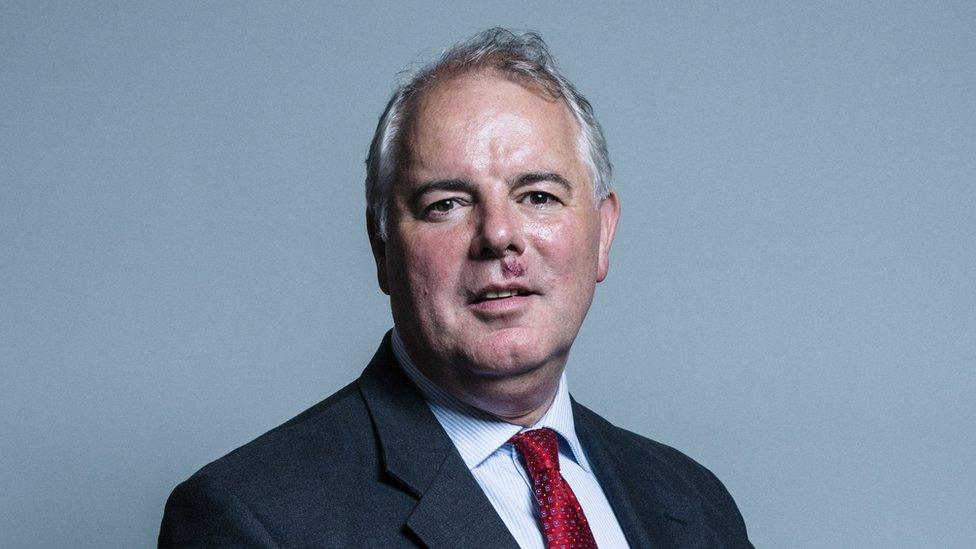Key committee player steps down
- Published
- comments

After their long post-election dormancy, the select committees have swung back into action - with a new crop of committee chairs and ordinary members looking to make their mark as scrutineers of government.
But one long-standing titan of the committee corridor will be missing.
Richard Bacon, a key player on the Public Accounts Committee, external, the Commons powerful financial watchdog, and a PAC member of 16 years standing, has stood down to pursue other interests.
You could call him the MP who made Margaret Hodge's dramatic reign as PAC chair possible.
Let me explain.
The carefully balanced architecture of the PAC dictates that it is always chaired by an Opposition MP - David Davis and Sir Edward Leigh in the Labour years, Margaret Hodge and Meg Hillier under the coalition and the Conservatives.
But to deliver the consensus necessary to give real punch to the PAC's reports, they all needed to work effectively across party lines - which is why the senior government MP on the committee has always been a critical player.
Margaret Hodge's campaign against tax avoidance provided some of the most compelling committee moments of the 2010-15 Parliament, as tax collectors and big business were berated, sometimes on live TV.
But the scathing reports which detailed their conduct were only possible because the Conservative members of the committee were prepared to sign off on them. And Mr Bacon was crucial in ensuring their support.
Getting answers
Similarly, the sometimes brutal hearings with staff from HMRC and other witnesses, were orchestrated in advance. Mr Bacon was the key actor in the dramatic hearing where the HMRC General Counsel, Anthony Inglese was required to swear an oath to tell the truth.
PAC members had become increasingly frustrated at their inability to extract answers in their inquiry into tax deals negotiated by HMRC with Vodafone and Goldman Sachs - so they took the highly unusual step of administering the oath, over Mr Inglese's shocked protests.
That action sent ripples through Whitehall, infuriated senior civil servants and prompted accusations of "grandstanding".
But Margaret Hodge cheerfully retorted that grandstanding was one of the key tools available to her committee to press its case. And her unrepentant refusal to budge was underpinned by the consensus in her committee... with Mr Bacon the keystone of the cross-party agreement on tactics and strategy, and his role was eventually formalised when he was officially made the Deputy Chair.
The Hodge-Bacon partnership allowed the PAC to deliver an endless stream of hard-hitting reports on waste in government and to broaden its work to cover failures in tax collection, somewhat to the irritation of the Treasury Committee, which saw that inquiry as an incursion onto its territory.
Not only was an important issue explored - but also there was a sense of genuine synergy between the parties and of a committee leadership having real fun, in the process.
But the PAC is very hard work, with an endless treadmill of reports from the National Audit Office to digest and follow up. Margaret Hodge stood down in 2015, to be succeeded by the former Home Office minister, Meg Hillier, and now Mr Bacon has departed as well.
The new committee membership includes an interesting mix of new Conservative MPs and old-stagers, and it will be interesting to see who emerges as the leader of the Tory PAC.
And the same issue applies across the committee corridor - really effective select committee work ultimately depends on getting a menu the parties can agree on; and for that, they all need a slice of Bacon.